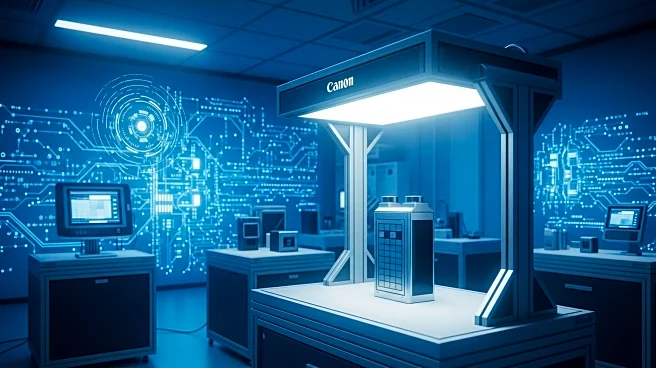What is the story about?
What's Happening?
CATL, the world's largest battery manufacturer, has announced plans to begin small-scale production of solid-state batteries by 2027. This development comes as CATL aims to temper expectations regarding the mass production of these batteries, which are known for their higher energy density and safety parameters. The company has been working on solid-state battery technology for a decade, with 1,000 engineers currently involved in the project. Despite the advancements, CATL has cautioned that the commercialization and supply chain development for solid-state batteries are still distant, with true mass production expected by 2030. The company has dispelled rumors of achieving an energy density that would allow an electric vehicle to travel over 1,200 miles on a single charge, stating that such capabilities are still in the lab phase.
Why It's Important?
The announcement by CATL is significant for the electric vehicle industry, as solid-state batteries promise higher energy density and improved safety compared to current liquid electrolyte batteries. However, the high cost of production remains a barrier to widespread adoption. CATL's cautious approach highlights the challenges in scaling up production and the need for further technological advancements. The potential impact on the EV market is substantial, as these batteries could extend vehicle range and reduce charging times, but the high costs may limit their initial use to applications where energy density is critical, such as drones and robots. The gradual scaling of production could eventually lead to more affordable options for mass-market electric cars.
What's Next?
CATL's focus on achieving manufacturing maturity by 2027 suggests that the company will continue to invest in research and development to overcome current production challenges. As the industry moves towards commercialization, stakeholders such as EV manufacturers and technology developers will likely monitor CATL's progress closely. The anticipated small-scale production could serve as a testing ground for refining manufacturing processes and reducing costs. Additionally, the involvement of other major players like BYD, Toyota, and Samsung in solid-state battery development indicates a competitive landscape that could drive innovation and accelerate the timeline for mass production.
Beyond the Headlines
The development of solid-state batteries also raises ethical and environmental considerations. The production process involves complex materials and technologies that could impact supply chains and resource allocation. As companies like CATL advance their capabilities, there may be increased scrutiny on the environmental footprint of battery manufacturing and the sourcing of raw materials. Furthermore, the shift towards solid-state technology could influence global energy policies and the transition to renewable energy sources, as more efficient batteries play a crucial role in reducing carbon emissions from transportation.
















